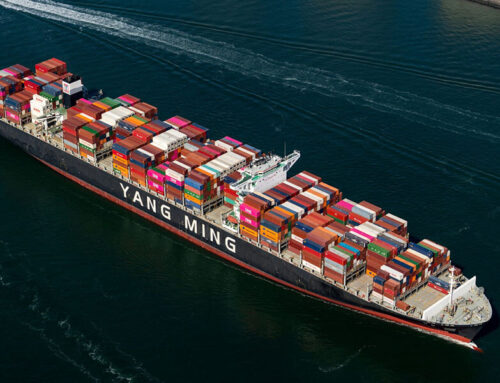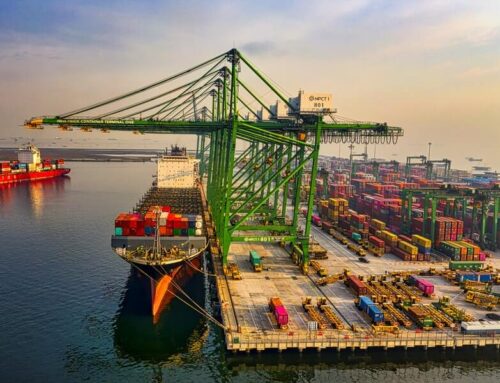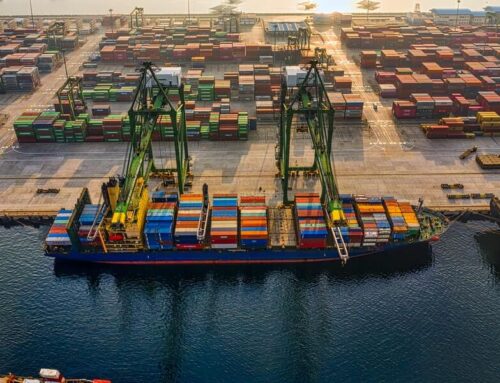 Shippers’ backing contrasts sharply with freight firms’ resistance, who claim the Biden administration is providing “misguided advice.”
Shippers’ backing contrasts sharply with freight firms’ resistance, who claim the Biden administration is providing “misguided advice.”
Cargo-owner advocacy groups applaud President Biden’s executive order on business competitiveness. Still, they argue that further regulatory action, if not legislation, may be required to address long-standing issues about freight transportation prices and services.
Jonathan Gold, vice president of supply chain and customs policy at the National Retail Federation, representing retailers who import goods into the United States, said, “I think it’s a start.”
Retailers are among the shippers that have seen transportation prices rise in recent months due to supply-chain disruptions caused by the pandemic’s upheaval in production and demand, which included significant delivery delays and additional surcharges.
President Biden signed a comprehensive executive order on Friday to foster competitive markets across the US economy and restrict corporate domination, which the White House claims disadvantages consumers, employees, and small businesses.
The directive urges the Federal Maritime Commission and the Surface Transportation Board, which govern the ocean shipping and freight train industries, respectively, to tighten their cargo transportation control.
The directive does not give the agencies any new powers. Still, it does focus on issues like railroads’ so-called reciprocal switching and the detention and demurrage costs that ocean carriers levy when importers and exporters fail to pick up containers within a specific time frame. These fees have risen considerably as port congestion has increased due to a surge in shipping demand.
“One of the concerns we’ve identified as a continuous issue impacting companies across the board is detention and demurrage,” Mr. Gold added. “And it’s up to the FMC to get it under control.”
According to the National Industrial Transportation League, which represents industries that ship bulk commodities like chemicals, such levies have become commonplace and are “crippling the maritime supply chain.”
“We applaud the administration for recognizing that current business practices in each sector are disrupting and delaying delivery of goods and services, adding unnecessary costs to businesses, and ultimately raising consumer costs,” said Jennifer Hedrick, Executive Director of the National Institute for Transforming Lives (NITL).
The five-member FMC, which is an independent federal organization, has been looking into ocean carriers’ use of late fees and competitiveness in the container shipping industry, which according to the White House order, has three carrier alliances controlling 80% of worldwide capacity.
The FMC has not sought new regulatory authority. Still, it said on Monday that it had reached an agreement with the Justice Department to improve antitrust cooperation in the marine industry.
In a statement, FMC Chairman Daniel B. Maffei said he is committed to “doing everything I can to have the Commission fully engage in this concerted governmentwide effort to improve the United States economy.”
However, freight carriers argue that the executive order is an overreaction to market factors that have wreaked havoc on supply chains in recent months.
The soaring charges and extended delays in ocean transport, according to John Butler, CEO of the World Shipping Council, a Washington-based trade association representing container shipping companies, are a “market anomaly” brought on by the impact of the Covid-19 outbreak.
Mr. Butler said in a statement that the current supply chain disruptions are the result of an unprecedented rise in American demand for goods from other countries. “There is no ‘problem’ to ‘fix,’ and punitive measures imposed on carriers based on faulty economic assumptions would not alleviate traffic congestion.”
The Association of American Railroads said the directive is “misguided” and will give trucking businesses an advantage over railroads by complicating rail operations.
Some cargo consumer advocacy groups argue that more targeted action is needed to change what they regard as an unstable regulatory environment that favors freight firms. Changes to the Shipping Act, which establishes the basis for marine regulation, could be among them.
According to Peter Friedmann, executive director of the Agriculture Transportation Coalition, which represents the US farm sector on logistical problems in Washington, the directive “shows that the FMC and other agencies are moving into the sights of the White House.” “It sends a message that those regulators aren’t looking out for the public’s shipping interests. That is a powerful message.”
Synopsis based on The Wall Street Journal’s article.







Leave A Comment